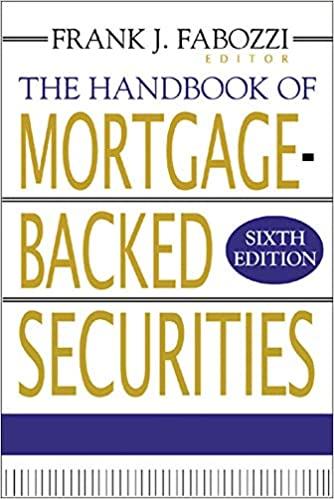Question
The company has the following market values of debt and equity. Market value of debt: $50 Market value of equity: $50 Therefore, the total market
The company has the following market values of debt and equity.
Market value of debt: $50
Market value of equity: $50
Therefore, the total market value of the assets is $100.
The firm has 10 shares outstanding, therefore, the current price per share is $5. The managers are considering an investment project with an initial cost of 30. They believe that the project should be worth $40. The company announces that it will issue new common stocks to obtain $30. However, due to information asymmetry between the management and the investors, as soon as the firm makes the announcement, investors believe that the firm's common stock must be overvalued and consequently bid down the price to $4.5 per share. However, the new common stock issuance would increase the total value of equity that lowers the debt ratio. Investors feel that the debt is thus safer than before, therefore, the interest rate for the debt drops and the value increases to $57.
Sometime later, if investors recognize $95 as the true value of the firm's original assets and $40 as the true value of the project, what would the rate of return for the new stockholders be? Assume that the value of debt stays at $57.
Select one:
(a) 5.54%
(b) 6.67%
(c) 4.00%
(d) 7.51%
(e) 4.83%
Step by Step Solution
There are 3 Steps involved in it
Step: 1

Get Instant Access to Expert-Tailored Solutions
See step-by-step solutions with expert insights and AI powered tools for academic success
Step: 2

Step: 3

Ace Your Homework with AI
Get the answers you need in no time with our AI-driven, step-by-step assistance
Get Started


